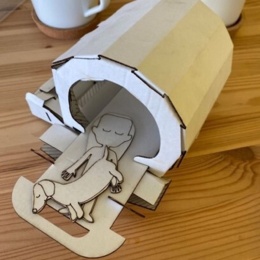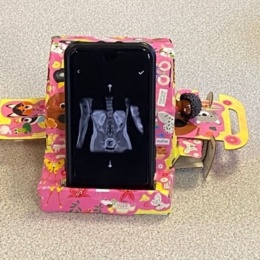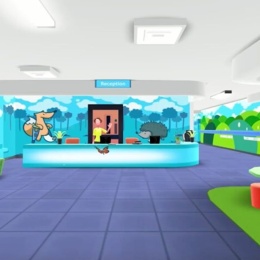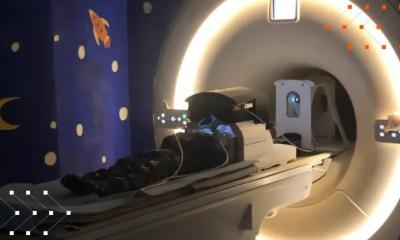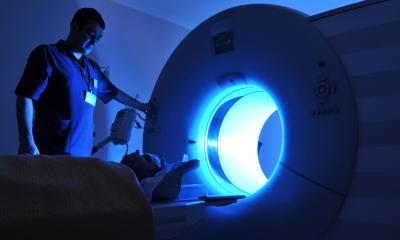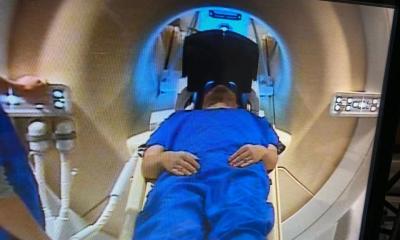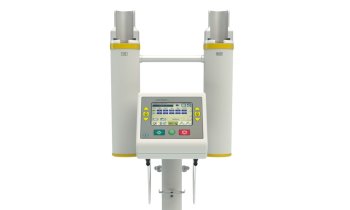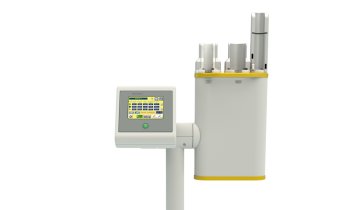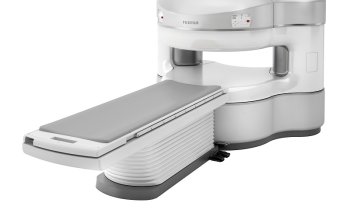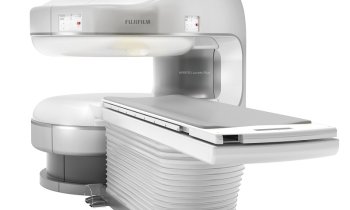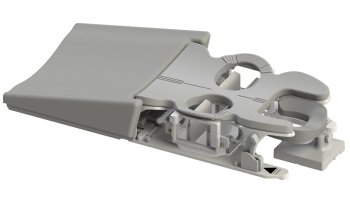
Image source: Thompson et al., BMJ Innovation 2023 (CC BY 4.0)
News • Playkits ahead of medical scan
Reducing kids' MRI anxiety with papercraft and VR
Curbing the need for sedation could boost patient safety, cut costs and waiting times, the researchers suggest
Giving children a virtual/augmented (mixed) reality playkit to use ahead of an MRI (magnetic resonance imaging) scan seems to ease both their and their parents’ anxieties about this procedure, suggest preliminary findings published in the open access journal BMJ Innovations. Reducing the need to put a child to sleep, because of the noise and time required to keep still while in the MRI tunnel, could not only boost patient safety, but also cut costs and waiting times, suggest the researchers.
MRI has emerged as an important diagnostic tool in children’s healthcare because of the high quality images produced and lower radiation exposure than CT (computed tomography) scanning, which is particularly important for children with long term conditions, they explain. But the procedure can be lengthy, during which time patients must lie still. And it’s very noisy—up to 80 decibels—requiring the use of protective ear defenders, making it a challenging experience for many patients, especially children.
Recommended article

Article • Focus on radiology
Magnetic resonance imaging (MRI)
Imaging without ionising radiation: MRI uses magnetic fields to look inside the body. Keep up-to-date with the latest research news, medical applications, and background information on MR imaging.
As a result, children are offered a general anaesthetic for the scan. But recent research and safety concerns about the potential impact of anaesthesia on a child’s developing brain have prompted an initiative to reduce the number of MRI scans carried out under sedation.
It is widely accepted that play can reduce children’s anxiety about medical treatment and procedures, and with that in mind, the researchers developed a playkit to help 4–10 year olds have an MRI scan without a general anaesthetic. They deliberately designed it to require the help of an adult as parental anxiety can directly influence the level of a child.
The playkit consists of a flat-packed cardboard kit for building into a small toy MRI scanner, into which the child can place their toy. A smartphone slotted into the side of the cardboard MRI scanner enables the child to take on the role of the radiographer, via an augmented reality app. Augmented reality superimposes a computer-generated image on a user’s view of the real world. The child can then scan their toy with the addition of scanning noises to replicate the MRI experience. Afterwards, the child can swipe through various aspects of the real MRI images the radiographer plans to take.
The kit also includes an age appropriate virtual reality cardboard headset, which, along with the app, allows the child to walk through the hospital virtually, culminating in him/her entering the MRI scanner itself. The walkthrough includes four interactive games to prepare the child for various aspects of their journey, such as checking in, being weighed, removing magnetic objects from clothing and staying still for the scan itself.
The development of the playkit was informed by primary school children’s and parental feedback, and tested on 13 patients and their parents/ carers. This feedback indicated that the playkit helped some children (and their parents/carers) to prepare for the MRI scan and that it also helped to relieve anxiety during the scan.
The children said that recalling aspects of the playkit during their scan helped them to remain calm and still. Others said that the playkit helped prepare them for what an MRI scanner would look like and the noise that it would make. Older children seemed to prefer the virtual reality aspects of the kit, while younger children were more drawn to the physical play and augmented reality aspects. Both children and parents/carers said that they had previously felt anxious about the prospect of an MRI scan because of the unknowns involved. And the children suggested that they would like to have detailed factual information about the MRI scan.
The mixed realities MRI playkit [...] presents an opportunity for a change in practice to reduce the number of paediatric [general anaesthesias] and improve efficiency and resource usage within radiology and anaesthetic departments
Jill Thompson et al.
As one child-parent pair found it difficult to build the mini cardboard scanner, the design may need further refinement, and the playkit would need to be tested on much larger numbers of children both nationally and internationally, emphasise the researchers. But they suggest that the kit has the potential to be adapted for use elsewhere: for example, to help prepare children coming into an admissions unit for planned surgery; during transfer to theatre; and needling procedures.
“The development of the mixed realities MRI playkit addresses a significant global problem within paediatric anaesthesia and presents an opportunity for a change in practice to reduce the number of paediatric [general anaesthesias] and improve efficiency and resource usage within radiology and anaesthetic departments,” they write. “The longest waiting list in radiology at our hospital is for MRI scans under [general anaesthesia], and delays in performing scans lead to delays in diagnosis and treatment for children and their families, as well as increased usage of scanning time which further impacts the MRI waiting list,” they elaborate. “Additionally, a reduction in the requirement of [general anaesthesia] for paediatric MRI reduces the need for an anaesthetist, enabling their use elsewhere—for example, to help reduce the backlog in elective surgery waiting lists.”
Source: BMJ
08.11.2023



